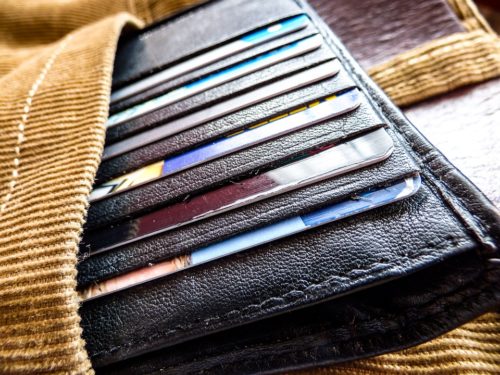The credit cards we carry in our wallets and how we use them to make purchases has changed a lot throughout the years. However, the average American’s financial knowledge is still limited. Many different companies let you know you’ve been “pre-qualified” for their credit card offer through junk mail inserts, every store seems to offer their own special credit card, and characters from TV pull out a whole stack every time they go shopping. You don’t want to base your real life spending and credit decisions on sitcom characters, but really, how many credit cards should you even have? And how many credit cards does is too much?
Why You Should Have Many Credit Cards
Building your credit can be confusing enough without managing several different cards. However, having multiple cards that you’re on top of can show that you are competent at managing several lines of credit. While your FICO credit score is not directly linked to how many credit cards you have, it can be indirectly related.
For example, 35 percent of your FICO credit score is determined by your payment history. If you are better able to manage your finances with multiple cards, then perhaps having more credit cards could help you. That way, instead of constantly monitoring whether you hit your limit or not, it can be spread out across multiple cards. This obviously carries some risk with it; only attempt it if you are a wizard at managing your personal finances.
Additionally, having more credit cards can help your credit utilization ratio–how much credit you’ve used versus how much you have available. If you open up another credit card, you will have a higher credit limit, resulting presumably in a lower ratio. Generally, you want to keep it to 30 percent or lower. However, opening up several credit cards in succession is also a red flag and will probably hurt your credit score. Instead, opening a few credit cards with a long time in between is a much safer bet.
Some credit cards also serve different purposes. Having a business as well as a personal credit card can help keep those finances separate and make bookkeeping easier. Different credit cards also might offer rewards for different purchases. One might get you more cash back on gas while another gives you more on groceries. In order to maximize your rewards, it can be advantageous to juggle multiple cards.
Why You Only Need One Credit Card
On the other hand, if you are far from a financial wizard, managing just one credit card can be overwhelming. The minimum monthly payment has declined, making it appear easier to manage a credit card, but in reality this just means that you’ll be paying much more than you originally owed, thanks to interest. This can make it a lot harder to manage your money. Add to that the temptation of additional credit, and multiple credit cards might mean trouble.
Also, 15 percent of your FICO credit score is the age of your credit history. Having multiple cards lowers the average age of your credit cards, which could have a negative impact if you open up several too quickly. Especially if you’re just starting out, you want to focus on building the impression of stability. It’s better to pay off one credit card every month than be scrambling to to pay the minimum balance on several.
And while it might be nice to balance your spending between several different rewards credit cards, you likely won’t be spending enough on one to see any tangible benefits for a while. It will take much longer to earn a sizable amount of cash back if you’re only using that credit card for half of what you normally would. Earning rewards on your credit card is an amazing way to get back some of what you spent, but if you’re looking to accrue a certain number of miles faster, it might be better to only use one rewards card.
Whether or not you want to have multiple credit cards is entirely based on how well you can balance your finances. If you are confident in your ability to handle several different accounts, reward systems, and debts, then having more than one credit card could boost your credit score, provided that you handle it responsibly. Alternatively, if you are not as financially stable as you would like, or if you’re simply not financially-savvy yet, handling a single card might be the way to go. Unfortunately, like most things in the finance world, there is not a clear cut answer.
Looking for more information on credit cards? Visit our learning center. What else affects your credit score? Learn more at our credit score resource center.
Image source: https://pixabay.com/





